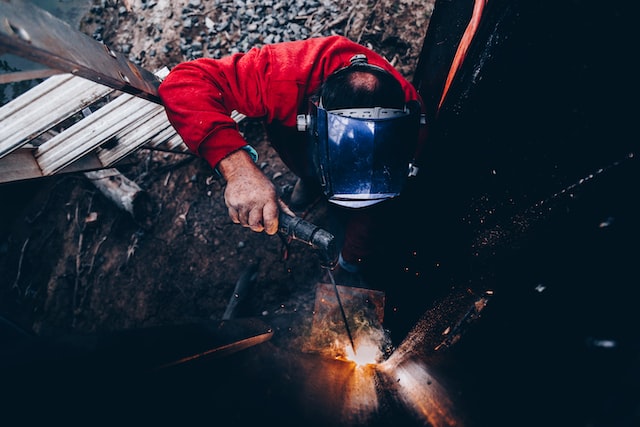Because welders are often overexposed to ultraviolet light, infrared radiation, and heat from the electric arc, this can cause their eyes to become sore and degenerate, tending to develop a condition known as welder's eye. This can be effectively prevented through the use of high-quality welding helmets and can protect welders from other injuries while working.
Welders are often injured by high temperatures and hot-melt metal sheets during work. Welding helmets are the most important protective equipment for welders. High-quality welding helmets can effectively protect welders. Although the ultimate purpose of wearing a welding helmet is to protect the wearer from visible and invisible rays from the welding arc, not all helmets are alike in design and type. Choosing the best welding helmet for your specific needs among the many brands and information is a very difficult question, and in this case, it is often difficult to determine which welding helmet is right for you. Safety and comfort are one of the most important considerations in choosing a quality welding helmet. However, other factors must also be considered.
In the United States, welding helmets are required to meet ANSI standards - and in Canada, helmets need to meet CSA standards.
One of the essential features of any helmet is safety and compliance, and this should be your primary concern when purchasing a welding helmet. Only a welding helmet that meets safety standards can ensure that the welding lenses will protect the welder from anything else that could affect the eyes, including ultraviolet and infrared rays. Safety standards must come first.

Passive helmets have a dark lens, usually with a fixed chroma value of #10. When the helmet is in the down position, you will be using the dark lens. The lens will be in the dark state and will not switch from the dark state to the light state. Although these helmets are usually very light, you will need to remove the helmet when inspecting welds because you cannot select the shade level and constant dark lens. This can make certain welding processes and viewing your work area between welds can be difficult.
Auto-darkening helmets are suitable for any welding level - from amateur to professional. Auto-darkening helmets with fixed shade combine the economy of a fixed shade helmet with the benefits of auto-darkening. The variable shade allows you to choose shade preference, which allows you to adjust the shade for different welding processes and applications. Shades range from #8 shades for low amperage use to #13 shades for high amperage use. When the helmet is in the down position, you will see the weld seam and surrounding area through a light lens for clear visibility and evaluation. Once the welding arc is struck, the helmet will automatically darken to the shade of your choice. If most of your welding involves similar materials using the same welding process, then a fixed-shadow auto-darkening helmet may be the right choice.
The weight of a welding helmet is an important factor to consider when choosing a welding helmet. A welding helmet that is light in weight and comfortable to wear is the ideal choice. Heavy-weight welding helmets are not suitable for long periods of wear, they can cause severe neck pain and can lead to reduced work efficiency.
Oversized and loose helmets may not protect your eyes well and may require you to constantly reposition the helmet to hold it correctly around your head while you work, which not only interferes with your ability to do your job properly but also does not provide effective eye and face protection.
Regardless of the type of welding process, welders must use quality personal protective equipment to keep themselves safe and protected. Make sure you end up choosing a quality welding helmet that has the features you need and that its adjustable controls are easy to use and comfortable to place. T-safety supports customized high-quality welding helmets, if you have any ideas, please contact us to customize your exclusive welding helmet.
Copyright © Hebei Sinotools Industrial Co.,Ltd. All Rights Reserved | Powered by  Sitemap
Sitemap